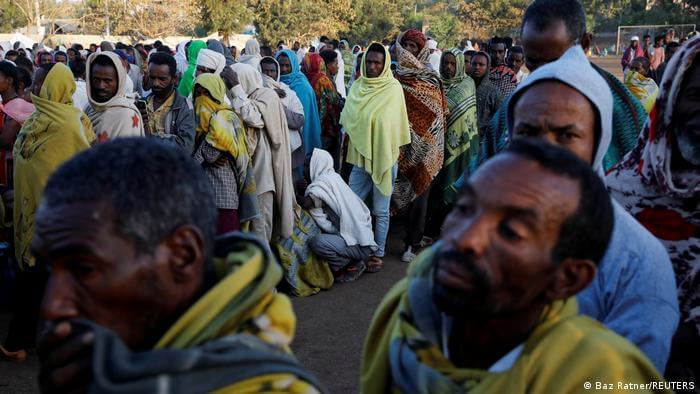
US Doubles Aid To Tigray, Ethiopia
The US said “large-scale assistance is urgently needed” in order to prevent the humanitarian situation in Tigray from worsening. The area has seen a violent conflict for several months.
The United States said that it would provide another $152 million (€128 million) to the Tigray region of Ethiopia in the wake of ongoing fighting and potential famine.
The aid will come through the US Agency for International Development (USAID). It will double the amount of funding that the US provides to the Tigray region in the East African nation. The organization said the funds will address “life-threatening hunger and acute malnutrition, as well as provide safe drinking water, urgently needed medical and health support, and shelter for some of the estimated one million people who have fled their homes.”
“Large-scale assistance is urgently needed to prevent conditions in Tigray from worsening,” the organization said.
State Department spokesman Ned Price demanded “full and unhindered access” to Tigray.
“It is absolutely critical for the humanitarian community to not only scale up its response but also to ensure that that humanitarian assistance is reaching the people in need,” said Price.
Tigray raises concern in White House
White House national security adviser Jake Sullivan also expressed concerns about the situation in Tigray while speaking to Ethiopia’s deputy prime minister, Demeke Mekonnen, on Wednesday.
The White House said Sullivan and Mekonnen “discussed critical steps to address the crisis, including expanded humanitarian access, cessation of hostilities, departure of foreign troops, and independent investigations into atrocities and human rights violations.”
Sullivan also pushed for the promised departure of Eritrean troops, which have fought against the ruling local party, said National Security Council spokeswoman Emily Horne. The State Department said on Monday that the US was looking into reports of human rights abuses and atrocities in Tigray.
US Secretary of State Antony Blinken has previously spoken of “ethnic cleansing” in the region.

